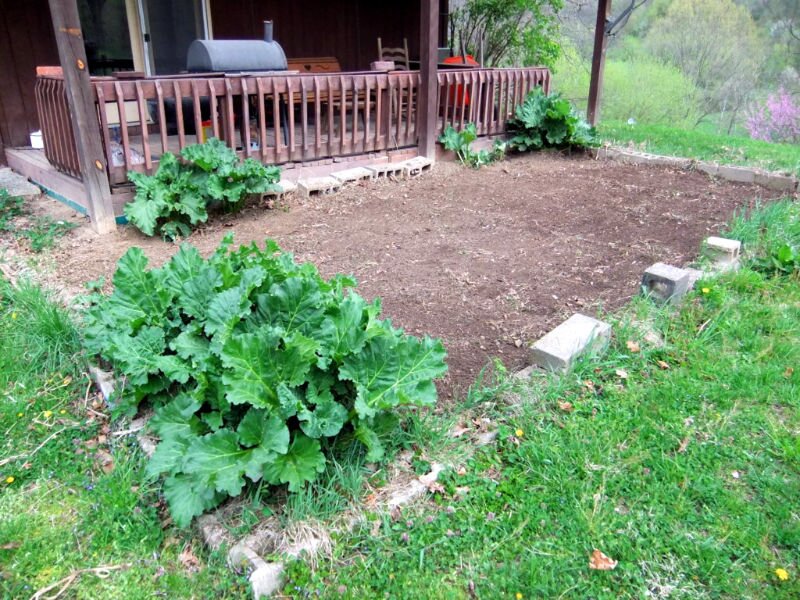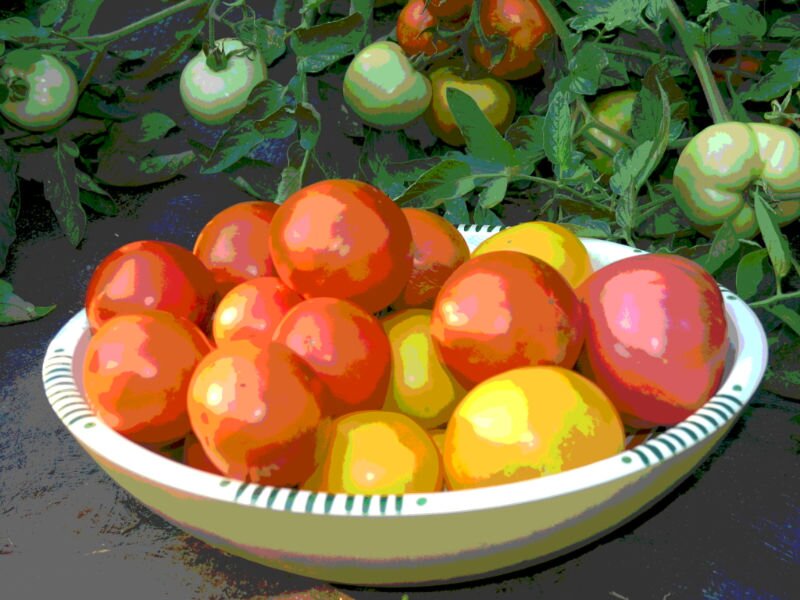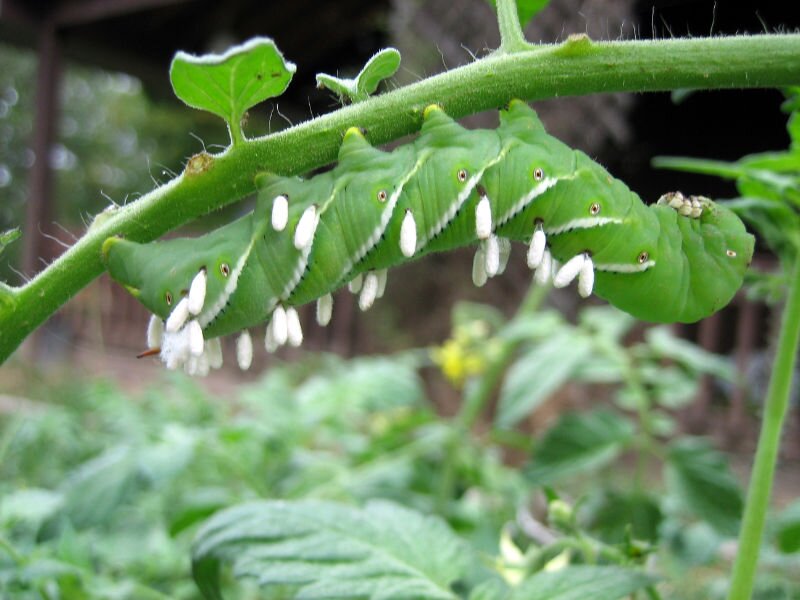
You probably don’t remember it first-hand — I don’t — but during World Wars I and II people established what were called “victory gardens.” The idea was that if people grew some of their own food instead of buying it, it would free up supplies to feed our fighters in Europe and the Pacific.
It’s time to revive the practice, though for a different reason, and this is the time of year to plan and prepare. Food prices are rising, due to a phenomenon we wouldn’t have imagined a year or two ago: we have actual food shortages.
Some of this is fallout from the war in Ukraine, a country that normally exports a substantial amount of wheat. (Russia exports some wheat, too, but we’re not doing business with them.) Some of it has to do with the wrong-headedness of our politicians, fueled in part by their inability to see beyond the next election and fortified by their desire to support local business, even if it is generally harmful. We’re running our cars on food and making it hard to provide proper gasoline.
For those of us skeptical of the political application of “science” by the government in pursuit of ends it wanted anyway, there’s new and powerful evidence in support of that sort of doubt.
It comes in the form of a recent report in the highly regarded Proceedings of the National Academy of Sciences, which found that the mandated inclusion of ethanol — a corn-derived alcohol — in fuel for transportation is far worse for the environment than plain old gasoline ever was. The number of reasons for grain-derived ethanol in our fuel has dropped to zero, unless you consider lining politicians’ re-election pockets a reason.
“The study . . . contradicts previous research commissioned by the U.S. Department of Agriculture (USDA) showing ethanol and other biofuels to be relatively green,” reported Reuters.
The report says ethanol production and combustion produce about 24 percent more carbon than does gasoline.
Putting corn squeezings in vehicular fuel became the law in 2005, in the Renewable Fuel Standards part of the Energy Policy Act of 2005. It mandated that by this year, “there must be 15 billion gallons (and no more) of corn-based ethanol and 21 billion gallons of non-corn biofuels in the nation’s fuel supply. In essence, the RFS mandates a market for corn farmers and biofuel producers, gives preferential treatment to the production of corn and soybeans, and artificially eliminates the risk and competition necessary for a healthy and growing economy,” noted a Heritage Foundation report in 2013.
The law, supported by the big agricultural conglomerates and the legislators they’ve purchased — surprised? — led to an increase in the price of corn, as well as land normally used for other crops, pastures, and wildlife habitat being converted to corn production. It caused a diminution of the amount of corn set aside to feed animals and people, leading to higher prices for meat and poultry and corn-derived foods. N.B.: This is what happens when politics takes precedence over the free market. If ethanol made driving cleaner and better, the market would already have been there. But no, representatives from corn-producing states were able to crowbar into law that gasoline get adulterated with the products of their constituents and their powerful organizations. In years when there have been bad crops, it has been animal and human food that has suffered — there’s no law requiring people and animals to eat, but there’s one requiring food to be converted to ethanol to dilute gasoline.
How big an issue is it? Well . . . in 2020 the U.S. burned 12.63 billion gallons of ethanol mixed into its gasoline. A well-run farm in a typical year produces about 7000 pounds of corn per acre, which can be processed into about 325 gallons of ethanol. The law mandating 10 percent of automotive gasoline be ethanol results in each gallon of gas produced containing, effectively, 26.1 pounds of corn. In 2020, 38.9 million acres of farmland went solely to the production of ethanol for use as a gasoline additive. It works out to 270 billion pounds of corn, or about 815 pounds of corn for every man, woman, and child in the country.
Oh, and ethanol is bad for your engine. I’ve gone through hell replacing the carburetors on implements such as emergency generators, ruined because ethanol is corrosive and causes malfunctions such as needle valves welding themselves in place. This doesn’t happen with pure gasoline, but where that’s available at all, it’s many times the cost of ethanol-adulterated gas.
“But when the EPA designates a fuel blend as ‘legal,’ they're really enabling themselves to saturate the market with this diluted gasoline, since the agency can ultimately control what's available to consumers,” pointed out How Stuff Works in an article on how ethanol-modified gasoline can ruin car engines.
And because ethanol is more expensive to produce than gasoline is, it’s a contributor to higher gasoline prices. Moreover, it reduces your car’s mileage, because there’s less energy in ethanol than there is in gasoline.
There is absolutely no legitimate reason to keep the ethanol mandate, yet keep it we do because politicians like that sweet, sweet money from the big agricultural conglomerates. Corn-belt governors and senators squeal like stuck pigs at mention of repeal.
Now we’re facing a shortage of fuel and the resulting higher prices because our leading politicians are incapable of understanding even the most basic tenets of macroeconomics and because they’re slaves to noisy minorities within their own parties and, of course, to big campaign donors. We would have no shortage of fuel if petroleum exploration were encouraged, or at least not hindered.
But we’re also facing a shortage of food. I don’t mean avocados and pomegranates, but basic foods necessary for human survival. Things like corn (for eating) and wheat. Soybeans, which are efficient sources of high-quality protein, have recently gotten the evil eye from nutrition nitwits who have no idea what they’re talking about. Soy products are good and good for you. Much of the land that ought to be producing those crops as food have instead been turned to ethanol production.
Most of the above has to do with things on a national level, and absent our voices being heard loudly at election time there’s not much we can do about it.
But there’s a lot we can do on a local level, and by that I mean very local, as in your own property. It doesn’t cost much and is very rewarding.
Grow some food. It’s cheap, not overly time consuming, and rewarding both mentally and physically. Choose your crops carefully — it’s a poor choice, for instance, to try to grow corn in pots on an apartment balcony (I know someone who did this) — and you’ll have things to eat that will make you smile and that will save you money.

It’s fairly easy:
If you have a sunny place in the back yard, you can grow tomatoes. A lot of people make the mistake of getting too many tomato plants. Three plants well tended will give a family more tomatoes than they need, and they’ll be the best tomatoes they ever tasted. You can even grow tomatoes on a balcony if you get very big flower pots and good soil. A dozen potato plants will serve your family well, and seed potatoes are easy to get. It’s almost but not quite too late to plant them — St. Patrick’s Day is the traditional time for that — but you’d be surprised at how many potatoes you can grow in a fairly small space (though not a balcony). But a 10-by-10-foot area of potatoes will produce enough that you’ll give many away and still have enough that, stored properly, you’ll have potatoes well into next winter.

Sweet peas and green beans are a little more labor intensive and produce less vegetable for unit of space, but if you feel like growing them you’ll be rewarded.
Various squash and cucumbers are easy to grow and tend to produce heavily, but grow them in proportion to your desire to actually consume them. As I was growing up my family grew a lot of these. My mom canned — “put up” — pickles of all sorts, and I’ve never tasted their equal. But we didn’t eat much squash and we had to beg people to accept them as gifts. Likewise bell peppers. (I should mention that canning is a wonderful way of preserving home-grown produce, but it’s not to be undertaken lightly: done incorrectly, it will kill you and others who eat your improperly canned foods.)
If you’re not already doing so, grow some rhubarb. It takes little space, comes back year after year after year, and even if you don’t use it yourself you probably know a baker who would be glad to have some and who will likely reward you with delicious baked goods.
Raise the good stuff. There’s little point in spending your time and garden space on produce that is cheap at the store. I’m looking at you, radishes, turnips, carrots, and, conditionally beets (the condition being your willingness to use the whole plant, greens as well as bulbs). Learn what pests there are in your area — a few deer can wipe out most of a garden overnight. Be prepared to spend more time than you’d like picking potato bugs and searching for tomato worms.

The important thing is to study what you’re doing — the internet is full of useful information on growing most fruits, herbs, and vegetables — and to start out small (and, most likely, stay small; my family gardened to the limit and would have failed but for three children and parents strict enough to force us to do amounts of work that are probably illegal now). If you get carried away at the greenhouse or garden supply store you’re all but certain to give up before your garden has produced much.
Do you have a compost pile? While they’re not practical everywhere, they are in a lot of places whose owners still don’t have them. They’re made in a place accessible from but not right next to the house. You put garbage capable of rotting there — banana peels, kitchen scraps, as well as egg shells and fireplace ash — along with grass clippings, manure (if you have any livestock), coffee grounds (I just add ‘em filter and all), and garden debris at the end of each season. Every so often I turn mine with a shovel, but this is optional if you take dirt from the oldest part of the pile. It’s a source of nutrient-rich, earthworm-filled soil that’s perfect for renewing garden space. Again, there’s all sorts of information online about compost piles, which reduce the need for added fertilizer.
The result will be the satisfaction of growing food better than you could buy, the saving of an ever-increasing amount of money, the good exercise that comes from forcing the kids to go weed the tomatoes, and the pleasure of accomplishment. Not bad.
And when you sit down to a meal that includes home-grown food, you’ll see it as the victory it is.

Dennis E. Powell is crackpot-at-large at Open for Business. Powell was a reporter in New York and elsewhere before moving to Ohio, where he has (mostly) recovered. You can reach him at dep@drippingwithirony.com.
You need to be logged in if you wish to comment on this article. Sign in or sign up here.
Start the Conversation